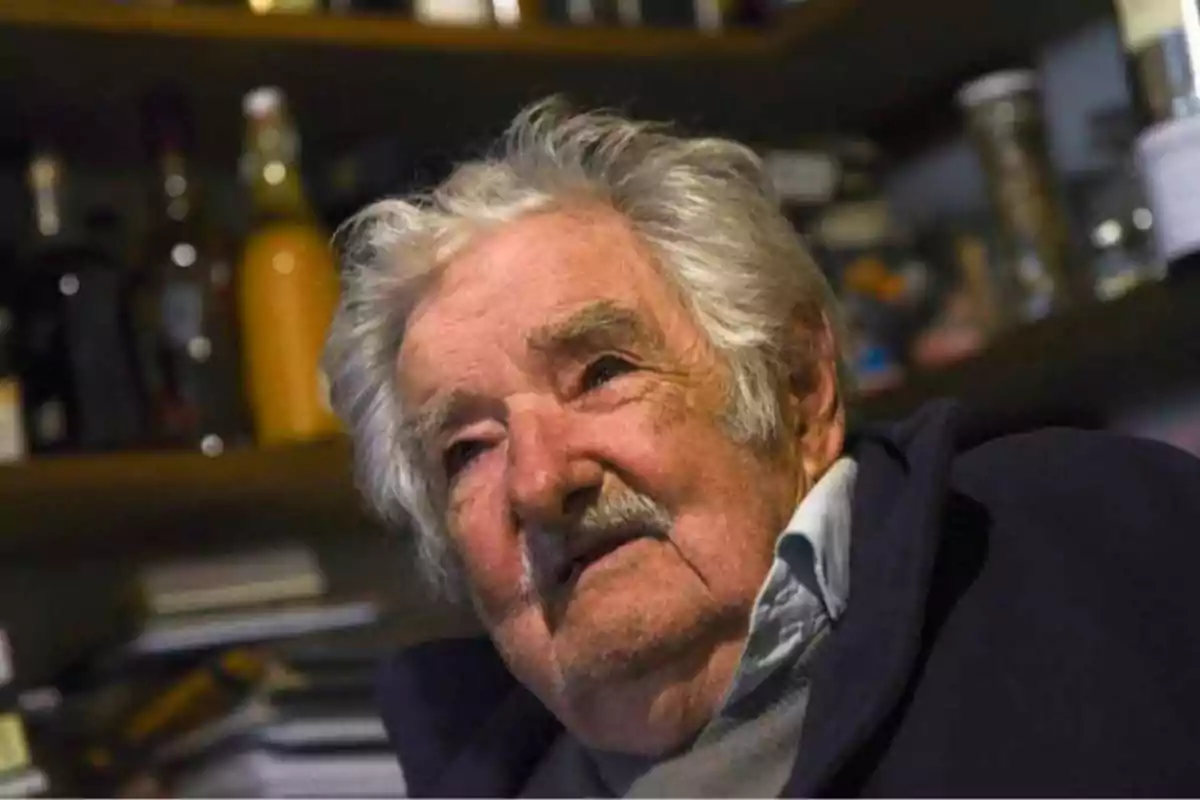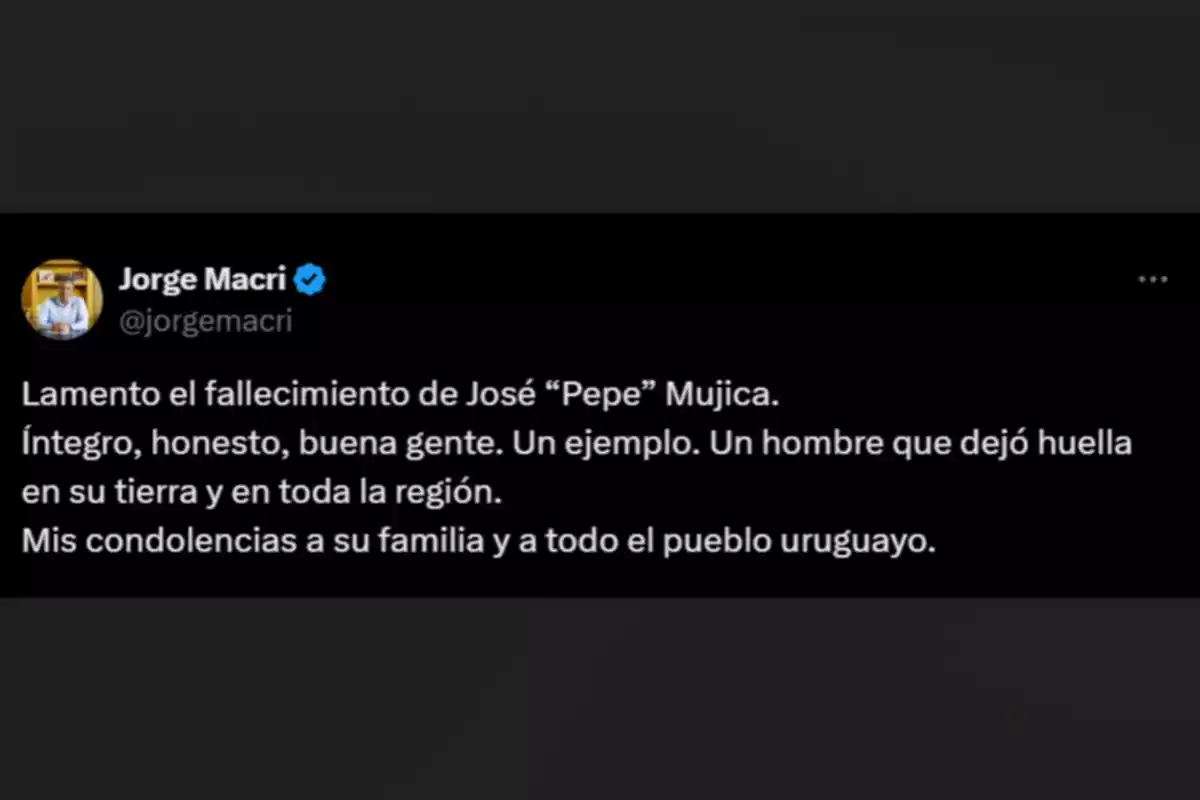
Mauricio and Jorge Macri lamented the death of the terrorist 'Pepe' Mujica.
Mauricio and Jorge Macri published messages of appreciation following the departure of the former Uruguayan guerrilla, 'Pepe' Mujica
The passing of José "Pepe" Mujica this Tuesday at the age of 89, at his farm located on the outskirts of Montevideo, marked the end of a controversial and deeply political life. Mujica, long afflicted by cancer, was bid farewell with praise from leftist leaders, but also—remarkably—by figures from Argentina's PRO.
His critics hold him responsible for having sown an era of political violence and for not having fully expressed remorse for his actions. Even so, he received tributes and condolences from figures across different ideological spaces. Among them, former Argentine president Mauricio Macri, who wrote on X:
"My remembrance and respect for Pepe Mujica. He was an honest person, committed to his ideas and the history of his country. My condolences to the Uruguayan people, his family, and friends."

But he wasn't the only Macri to react. The head of Government of the Autonomous City of Buenos Aires, Jorge Macri, also posted a laudatory message:
"I regret the passing of José 'Pepe' Mujica. Integral, honest, good people. An example. A man who left a mark on his land and throughout the region. My condolences to his family and to all the Uruguayan people."
These statements caused surprise and discomfort in sectors that expected a more blunt condemnation of Mujica's legacy. That two leaders of a political force that defines itself as democratic praise without reservations a figure who justified political violence and was part of an armed insurgent organization raises questions about the ideological coherence of contemporary macrismo.
The news was confirmed by the current president of Uruguay, Yamandú Orsi, considered his political disciple, who expressed on the X network: "With deep sorrow, we announce that our comrade Pepe Mujica has passed away. President, militant, reference, and leader. We will miss you dearly, dear Old Man. Thank you for everything you gave us and for your deep love for your people."

Mujica was a central figure in more than fifty years of Uruguayan political history. However, his institutional rise was preceded by a past of extreme violence. In the 1960s, he was one of the founders of the National Liberation Movement-Tupamaros, a far-left armed organization responsible for robberies, kidnappings, and attacks throughout the country. Their first action was the assault on the Swiss Shooting Society in Nueva Helvecia, Colonia, on July 31, 1963.
During his time as an insurgent, Mujica operated under false identities such as "Ulpiano" and "Facundo." He was captured and escaped twice from the Punta Carretas Prison, now transformed into a shopping mall. In 1970, he was betrayed and shot six times in a bar in Montevideo. His last detention kept him imprisoned for 13 years, from 1972 until the democratic return in 1985.
In 1989, the Tupamaros joined the Broad Front, founded by General Líber Seregni. Mujica quickly rose in party politics: he was a minister in the first government of Tabaré Vázquez, then succeeded him as a candidate, and finally presided over Uruguay between 2010 and 2015, after defeating Danilo Astori in his party's primaries. He was a beloved figure among broad popular sectors, although he never fully managed to shake off the stigma of his armed past.
More posts: